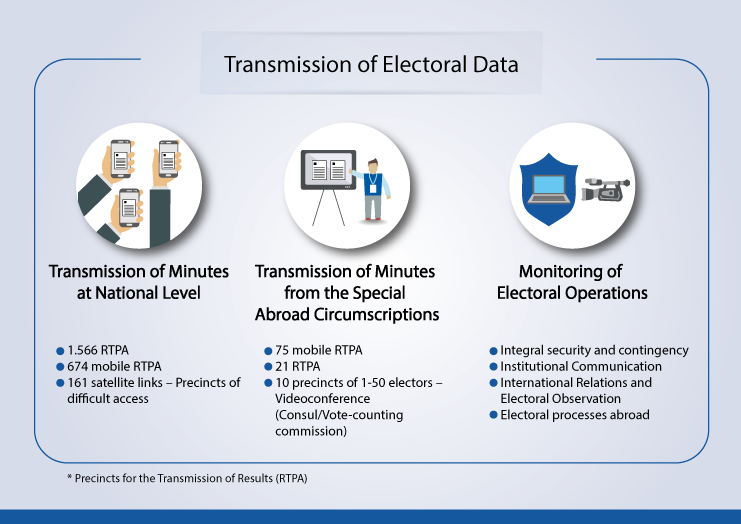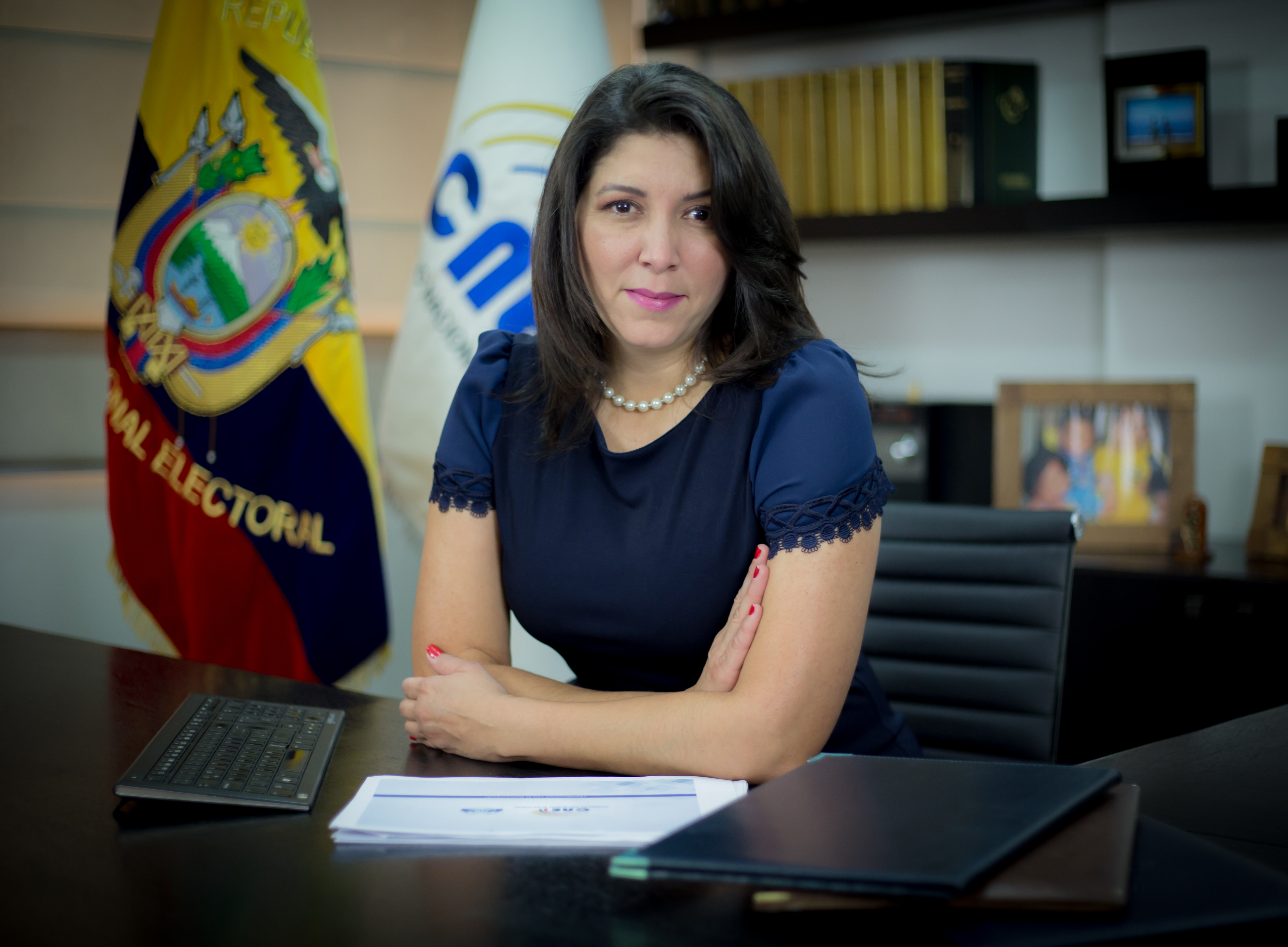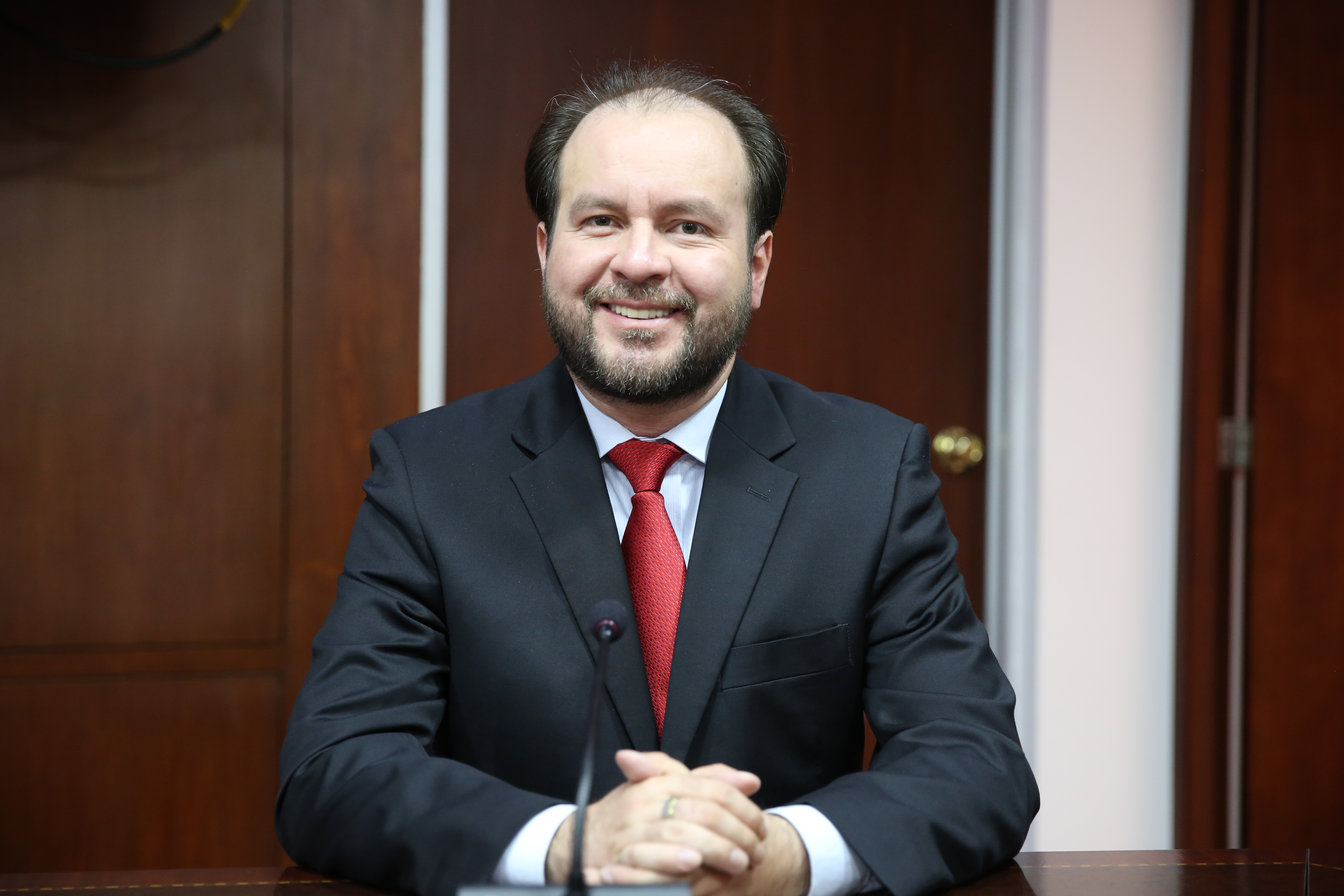
ter nformation, ommunication & ducation work
Global Knowledge Network On Voter Education - learning from each other
CNE implements a digital tool for tracking and monitoring in the Popular Consultation Technology at the service of Society
Technological changes keep a close relation with the different generations of individuals that play the leading role in them. Focusing on the new generational groups is key in the democratization of information and in the citizenshipzation of communication, which entails a necessary instantaneity of answers and immediacy for decision making at the service of society.
The new generations of citizens informed in democracy have had vertiginous experiences in relation to the communication they receive. But, who are they? Who are the Millennials? And what do they want?
Let’s begin by stating that “Millennials” o “Generation Y” is the denomination given to those born between 1980 and 2000 (15-35 years of age), and, according to several studies, they have a strong way of interacting with social problems, they are capable of developing empathy towards certain topics and filtering the information they consume with a critical thinking. Regarding information transfer, Millennials communicate through cellphones; in Ecuador, over 60% of them use a smartphone.
From this social interaction arises the need of playing a more active role in the use of technologies as main tools to inform the citizens. The study “New Kids on the Block” determines that, as of today, there are more than 2.000 million Millennials, which represents 32% of the world’s population.

With these premises in mind, and considering the facts described in a general way, we, as members of the National Electoral Council (CNE), must adequate our administrative and operational practices, not only to organize electoral processes, but also to conjugate the new technologies with the practices demanded by the active generations of information in democracy.
In the process of Referendum and Popular Consultation 2018, the National Electoral Council, for the first time in the history of the country, as an innovative and unprecedented event, bet on technology through a mobile application specialized in tracking and monitoring of institutional activities; which, at the same time, serves for reducing time and even costs during the electoral process.
Citizens are connected in real time 24 hours a day; taking this into consideration, the CNE implemented an uninterrupted service for the transmission of data among electoral officials during every phase of the Election Day. Thanks to this, it could be known in real time the details of every electoral precinct in the country, including those of “difficult access”, where immediate transmission of electoral data was guaranteed through any mobile device, as well as assistance to electoral officials, set-up of polling stations and training to the members of the polling stations.
In this way, by immediately sending videos, audios and photographs, the operational activities of the National Electoral Council can be controlled between its National Directions and the 24 Provincial Commissions. At the same time, the official data of national vote-counting gets transmitted, giving fast access to information of the minutes already scanned and uploaded to the system. For instance, the coordinators of the different electoral precincts nationwide can notify any possible unexpected circumstance, in order to immediately make a decision.
Furthermore, the inputs received allow us to feed the dashboard, a graphic representation of the map of the entire Ecuadorian territory and our Special Boards Abroad, with the main indicators that allow the optimization, tracking, monitoring, analysis and effective compliance of the process.
The National Electoral Council of Ecuador is pioneer in the implementation of this digital tool and in the use of ICT aiming to substantially improve the access to information, strengthening the credibility in the electoral processes, optimizing celerity, efficiency and quality in the provision of services to the citizens, having regard to their demands and, more than anything, embracing the example that the technological day-to-day puts at our service.
The new generations of citizens informed in democracy have had vertiginous experiences in relation to the communication they receive. But, who are they? Who are the Millennials? And what do they want?
Let’s begin by stating that “Millennials” o “Generation Y” is the denomination given to those born between 1980 and 2000 (15-35 years of age), and, according to several studies, they have a strong way of interacting with social problems, they are capable of developing empathy towards certain topics and filtering the information they consume with a critical thinking. Regarding information transfer, Millennials communicate through cellphones; in Ecuador, over 60% of them use a smartphone.
From this social interaction arises the need of playing a more active role in the use of technologies as main tools to inform the citizens. The study “New Kids on the Block” determines that, as of today, there are more than 2.000 million Millennials, which represents 32% of the world’s population.

With these premises in mind, and considering the facts described in a general way, we, as members of the National Electoral Council (CNE), must adequate our administrative and operational practices, not only to organize electoral processes, but also to conjugate the new technologies with the practices demanded by the active generations of information in democracy.
In the process of Referendum and Popular Consultation 2018, the National Electoral Council, for the first time in the history of the country, as an innovative and unprecedented event, bet on technology through a mobile application specialized in tracking and monitoring of institutional activities; which, at the same time, serves for reducing time and even costs during the electoral process.
Citizens are connected in real time 24 hours a day; taking this into consideration, the CNE implemented an uninterrupted service for the transmission of data among electoral officials during every phase of the Election Day. Thanks to this, it could be known in real time the details of every electoral precinct in the country, including those of “difficult access”, where immediate transmission of electoral data was guaranteed through any mobile device, as well as assistance to electoral officials, set-up of polling stations and training to the members of the polling stations.
In this way, by immediately sending videos, audios and photographs, the operational activities of the National Electoral Council can be controlled between its National Directions and the 24 Provincial Commissions. At the same time, the official data of national vote-counting gets transmitted, giving fast access to information of the minutes already scanned and uploaded to the system. For instance, the coordinators of the different electoral precincts nationwide can notify any possible unexpected circumstance, in order to immediately make a decision.
Furthermore, the inputs received allow us to feed the dashboard, a graphic representation of the map of the entire Ecuadorian territory and our Special Boards Abroad, with the main indicators that allow the optimization, tracking, monitoring, analysis and effective compliance of the process.
The National Electoral Council of Ecuador is pioneer in the implementation of this digital tool and in the use of ICT aiming to substantially improve the access to information, strengthening the credibility in the electoral processes, optimizing celerity, efficiency and quality in the provision of services to the citizens, having regard to their demands and, more than anything, embracing the example that the technological day-to-day puts at our service.
 Nubia Villacís Carreño
Nubia Villacís Carreño
Senior Operations and Civic Education Officer
International Foundation for Electoral Systems (IFES), Ukraine

Councilor of the National Electoral Council – Ecuador